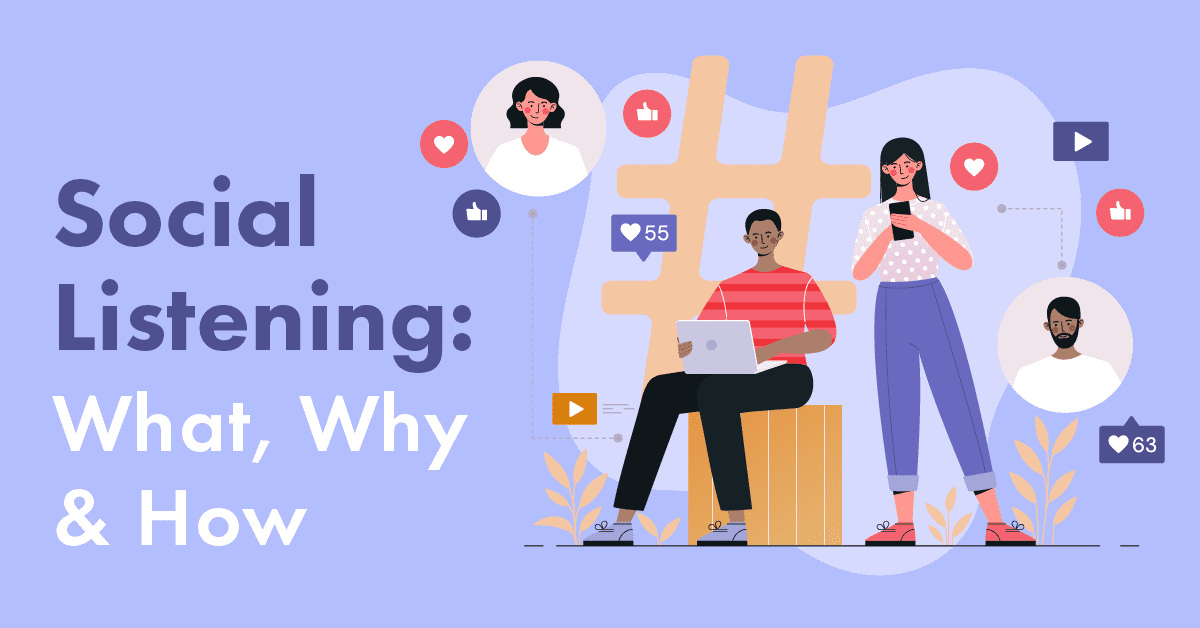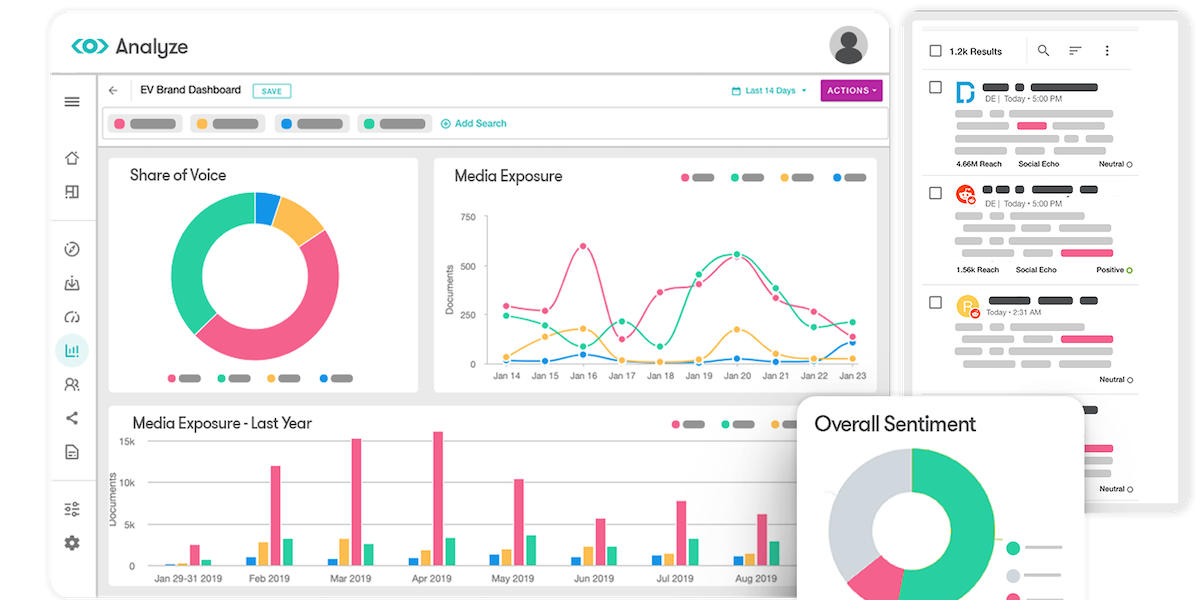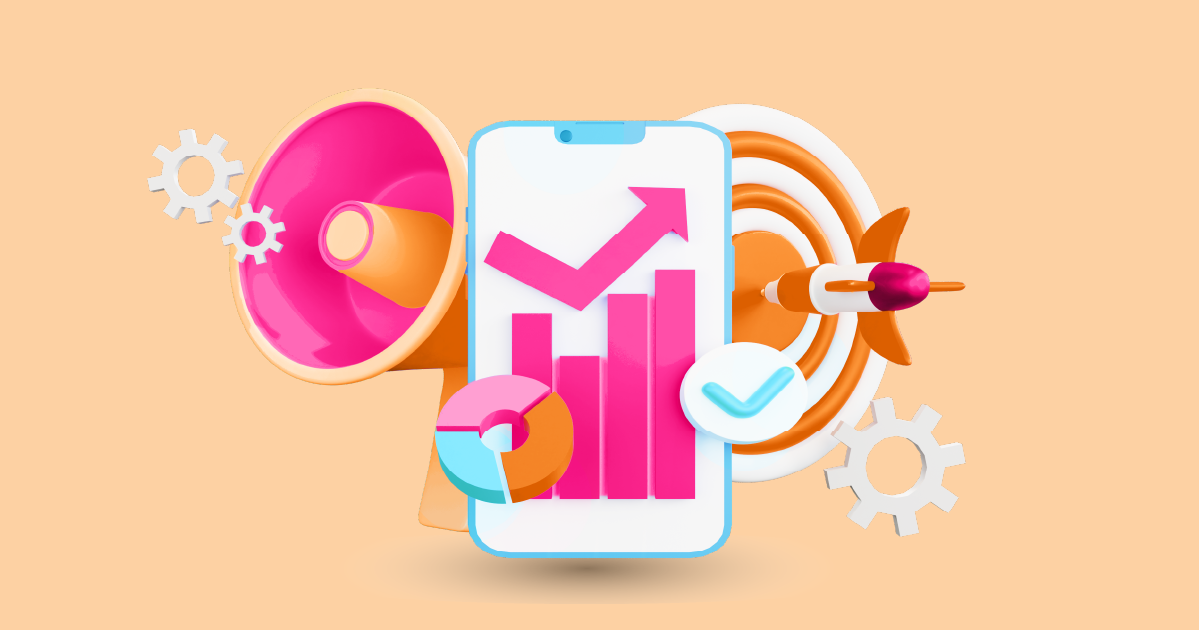In today’s digital age, where social media has become an integral part of our lives, businesses and brands have a tremendous opportunity to gain valuable insights from online conversations. This practice is known as social listening. By actively monitoring and analyzing conversations happening across various social media platforms, companies can uncover valuable information about their target audience, industry trends, brand reputation, and much more. In this article, we will delve into what is social listening, explore its benefits, and provide practical strategies for its implementation.
What Is Social Listening

Social listening refers to the process of monitoring online conversations to gain insights and understand the sentiments, opinions, and preferences of individuals or groups regarding specific topics, brands, or industries. It involves actively listening to what people are saying on social media platforms, such as Twitter, Facebook, Instagram, LinkedIn, and others. Social listening goes beyond simply tracking mentions or hashtags; it focuses on analyzing the context and sentiment behind the conversations to extract actionable insights.
Benefits of Social Listening
Social listening offers numerous benefits to businesses and marketers. Here are some key advantages:
1. Understanding Customer Sentiment
By analyzing social media conversations, businesses can gain a deep understanding of how their customers perceive their brand, products, or services. They can uncover positive sentiments, identify areas of improvement, and promptly address customer concerns, enhancing overall customer satisfaction.
2. Competitive Intelligence
Social monitoring provides valuable insights into competitors’ strategies, product launches, customer feedback, and brand reputation. This information empowers businesses to make informed decisions, differentiate themselves in the market, and stay ahead of the competition.
3. Trend Identification
Monitoring social media conversations allows companies to identify emerging trends and topics relevant to their industry. This knowledge enables them to create timely and relevant content, engage with their audience effectively, and capitalize on emerging opportunities.
Implementing Social Monitoring Strategies
To effectively implement social monitoring, businesses should follow these steps:
1. Set Clear Objectives
Define specific goals and objectives for your social listening efforts. Determine the key areas you want to monitor, such as brand mentions, industry trends, customer feedback, or competitor analysis.
2. Select Relevant Social Media Platforms
Identify the social media platforms where your target audience is most active. Focus your monitoring efforts on these platforms to gather the most relevant insights.
3. Choose the Right Tools
Utilize social listening tools to streamline the monitoring process and gain comprehensive insights. Some popular tools include Hootsuite, AIM Insights, Sprout Social, and Mention.
4. Monitor Keywords and Hashtags
Create a list of relevant keywords, hashtags, and brand mentions to track. These keywords should be specific to your industry, products, services, or target audience.
Social Media Listening Tools

Several tools are available to assist businesses in their social listening efforts. These tools provide advanced features for monitoring, analyzing, and extracting valuable insights from online conversations. Here are a few widely used social listening tools:
- Hootsuite: Hootsuite allows businesses to monitor social media conversations, schedule posts, and engage with their audience from a single dashboard. It supports multiple social media platforms and provides real-time analytics.
- AIM Insights: AIM Insights offers powerful social listening and analytics capabilities. It provides in-depth sentiment analysis, competitor benchmarking, and trend identification features.
- Sprout Social: Sprout Social enables businesses to monitor social media conversations, manage multiple profiles, and track brand mentions. It offers robust reporting and collaboration features for effective social listening.
- Mention: Mention is a social media monitoring tool that helps businesses track brand mentions, keywords, and hashtags across various platforms. It provides real-time alerts and sentiment analysis.
Analyzing Social Monitoring Data
Once businesses have gathered social monitoring data, it is crucial to analyze and interpret the insights effectively. Here are some key steps to consider:
1. Identify Key Themes and Sentiments
Categorize the collected data based on common themes and sentiments. This analysis will help identify recurring patterns, customer preferences, and potential areas for improvement.
2. Extract Actionable Insights
Focus on extracting actionable insights from the data. Look for opportunities to enhance customer experiences, improve products or services, and align marketing strategies with the preferences and needs of the target audience.
Social Media Listening Best Practices
To make the most of social monitoring efforts, businesses should follow these best practices:
1. Be Proactive and Responsive
Actively engage with customers and respond to their queries, feedback, or concerns. Prompt responses show that your brand values its customers and is dedicated to providing excellent customer service.
2. Collaborate Across Departments
Social monitoring insights can benefit various departments within an organization, such as marketing, customer service, product development, and sales. Foster collaboration and knowledge sharing across these departments to leverage the obtained insights effectively.
3. Stay Ethical and Respectful
Respect privacy and ensure compliance with data protection regulations while collecting and analyzing social monitoring data. Be transparent with customers about how their data is being used and obtain consent where necessary.
Future Trends
As social media continues to evolve, so does the practice of social listening. Here are some trends that are shaping the future of social listening:
1. AI-Powered Insights
Advancements in artificial intelligence (AI) and natural language processing (NLP) are enhancing social listening capabilities. AI-powered tools can analyze vast amounts of data quickly, identify patterns, and provide actionable insights with higher accuracy.
2. Integration with Customer Relationship Management (CRM) Systems
Integrating social monitoring data with CRM systems allows businesses to have a holistic view of their customers. This integration enables personalized marketing campaigns, improved customer experiences, and targeted sales efforts.
Conclusion
Social monitoring has become an indispensable tool for businesses seeking to understand their customers, monitor competitors, and stay ahead in today’s fast-paced digital landscape. By actively listening to online conversations and leveraging the power of social media, companies can gain valuable insights that drive informed decision-making, enhance customer experiences, and unlock new growth opportunities.
Are you ready to leverage the power of social listening for your business? Request a demo from AIM Technologies and discover how our advanced social listening solutions can benefit your organization.
FAQs
Can social monitoring be used by small businesses?
- Absolutely! Social monitoring is beneficial for businesses of all sizes. Small businesses can gain insights into their target audience, monitor their brand reputation, and identify opportunities for growth by actively listening to online conversations.
How frequently should social monitoring be conducted?
- The frequency of social monitoring depends on the business’s goals, industry dynamics, and resources available. It is advisable to monitor social media conversations regularly to stay updated with the latest trends, customer sentiments, and competitor activities.
Are there any free social monitoring tools available?
- Yes, several social monitoring tools offer free versions with limited features. Some popular free tools include Google Alerts, TweetDeck, and Social Mention. However, paid tools often provide more comprehensive and advanced capabilities.
Can social monitoring help in crisis management?
- Absolutely! Social monitoring plays a vital role in crisis management. By monitoring social media conversations during a crisis, businesses can quickly identify and address negative sentiments, mitigate reputational damage, and take appropriate actions to resolve the situation.
How can social media listening improve content marketing strategies?
- Social listening provides valuable insights into the preferences, interests, and challenges of the target audience. By understanding these insights, businesses can create relevant and engaging content that resonates with their audience, resulting in more effective content marketing strategies.




